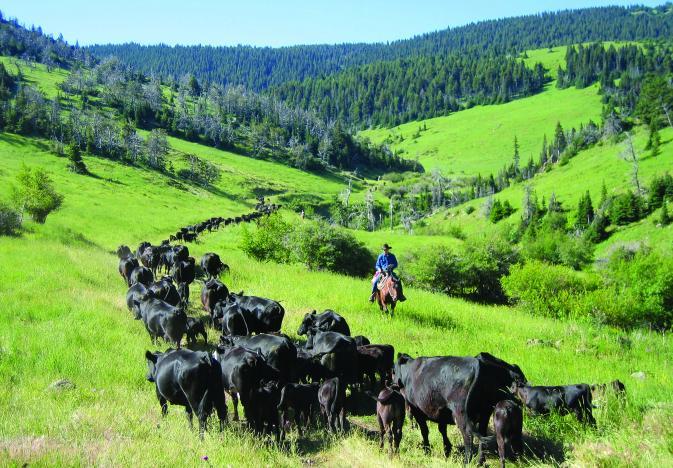Cargill Touts Canadian Sustainability Pilot

Three months of Cargill’s Canadian beef sustainability project produced encouraging results, the company says, proving the model works and demonstrating significant potential to scale the program to deliver a greater volume of certified sustainable beef to Canadian consumers
By Greg Henderson – Drovers
Participating Canadian ranchers earned $10 per head during the first quarter of the pilot for qualifying cattle that could be tracked through audited sustainable operations from farm to fork. Cargill said it continues to encourage additional ranchers to participate in the pilot during the remainder of 2018.
The Canadian pilot is designed to test and validate the audit and traceability systems necessary to meet the requirements of the Certified Sustainable Beef Framework established by the Canadian Roundtable for Sustainable Beef (CRSB).
“We appreciate the enthusiasm we’ve seen and momentum that’s been generated in the first few months of the pilot”
This framework, the first of its kind in the world, is a voluntary program that enables cattle producers and beef processors to demonstrate the sustainability of their operations while at the same time supporting the retail and food service industry in their sustainable beef sourcing efforts.
Details of the program can be found on the Canadian Beef Sustainability Acceleration Pilot web site.
“We are encouraged by the pilot’s first quarter results. It proved that a significant volume of beef can be successfully traced through a certified supply chain for the participating customers,” said Gurneesh Bhandal, Cargill’s beef sustainability manager in Toronto. “By adding more producers to the pilot, we can supply more customers with Canadian beef from sustainable sources.”
Cargill’s Canadian sustainability project follows a McDonald’s Canadian sustainability pilot that was completed in June 2016. Between January 2014 and April 2016, McDonald’s pilot conducted 183 on-site verifications on 178 beef operations, two packers, one beef-patty plant and two dairy farms.
Ultimately, McDonald’s pilot verified 8,967 cattle from 121 cow-calf producers and backgrounders, 20 feedlots and two packers. McDonald’s was able to source just over 300,000 pounds of beef trim from verifiably sustainable beef sources during the pilot.
During Cargill’s initial three months of its pilot, the company says the pilot tested and developed methodology for tracking eligible cattle through audited live animal supply chains. It also tested the methodology for tracking supply chain sustainability certifications from the beef carcass to finished products. By coupling live cattle and beef product traceability, Cargill’s Canadian customers can demonstrate the sustainability of their entire supply chain.
Verified Beef Production Plus (VBP+) – overseen by the Beef Cattle Research Council and operated with the assistance of provincial cattle organizations – is auditing cattle producers for sustainability during this pilot.
Cattle are tracked as they move through audited operations by the Beef Info-Exchange System’s (BIXS) RFID tagging system, from the time producers tagged them through processing at Cargill’s High River beef plant. BIXS is acting as the clearing house for the Canadian Sustainability Acceleration Pilot and will disperse the first round of credit payments to cattle producers by March 19.
In the first quarter, customers paid for beef delivered from an audited sustainable supply chain, and these payments funded the $10-per-head credits producers received for their involvement and commitment to Canadian beef sustainability, Cargill said. The pilot was able to successfully certify more than 550,000 pounds of beef according to the CRSB Framework standards and supply chain guidelines.
The certified sustainable beef came from more than 70 cattle producers, with many contributing multiple qualifying animals. Credit payments-per-head will vary each quarter based on total number of qualifying animals, participants’ beef demand and cattle weights.
“We appreciate the enthusiasm we’ve seen and momentum that’s been generated in the first few months of the pilot, and we are encouraged by the continued interest shown from additional cow/calf producers, feedlot operators and processing plants,” said Bhandal.












